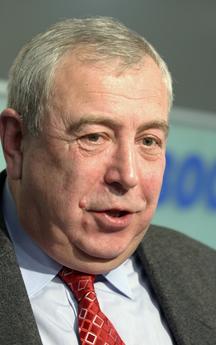The commercial operation of the 1000MWe Bushehr reactor unit in southern Iran has taken a significant step forward with a controversial fuel supply agreement signed between Russia and Iran.
Under the terms of the agreement, Russia will supply Iran with enriched uranium fuel some six months before its first nuclear plant enters service, expected by the end of 2006, although exact details remain confidential. However, the agreement provides that under the auspices of the International Atomic Energy Agency (IAEA), Teheran will send its spent fuel back to Russia, a condition built into the deal as a concession to Western concerns. Tehran initially rejected the clause, but relented after a series of negotiations which further delayed the plant’s commissioning. About 100t of fuel will be provided to the Russian designed and built plant and the return of spent fuel, to be financed by the Iranians, will occur in around 10 years.
The contract to build the first generating unit of the Bushehr station was signed in 1995 for which Russia is receiving slightly more than $1 billion. Heavy equipment, turbines and a generator have already been installed. Rosenergoatom’s Novovoronezh centre has also already trained several hundred specialists for the Bushehr plant and there are reports that about 700 engineers from Iran will be trained before the end of this year. Iranian specialists will be also trained at Russian plants which have the VVER-1000 water-cooled, water-moderated reactors of the kind Russian builders are constructing in Bushehr.
As a signatory to the Nuclear Non-Proliferation Treaty, Iran has the right to develop a civilian nuclear energy programme, but the USA believes Iran has a secret programme to make weapons and has been pushing for the country to be referred to the UN Security Council, allegations Iran denies. The deal was struck despite US objections, although officials said they could live with the pact because it was designed to eliminate the possibility of the Iranians misusing the fuel for weapons. Even so, critics fear that after developing a nuclear energy industry, Iran could withdraw from the treaty, break its agreement with Russia and process the spent fuel to produce plutonium.
Alexander Rumyantsev, the head of the Russian Federal Atomic Energy Agency, says that the creation of a full nuclear fuel cycle, including uranium extraction and dressing, fuel production and placement in a reactor as well as evacuation, processing and burying are only cost-effective if at least 8-10GWe of capacity is developed, making such a proposition unviable in Iran. However, while Russian officials have been quoted as saying that it is important that Iran does not resume a uranium enrichment programme the Iranian Foreign Minister, Kamal Kharazi, has reportedly countered that Iran will never give up its peaceful nuclear activities in exchange for economic incentives, an oblique reference to a raft of economic and technological incentives offered by the European Union in order to persuade Iran to halt its highly sensitive enrichment programme, including the prospects of accession to the World Trade Organisation.
Iran temporarily suspended work on enrichment pending negotiations with Britain, France, Germany, but has repeatedly said the freeze is short-term only. Nonetheless, US support for European diplomacy has improved the chances of reaching a negotiated solution to the uranium enrichment programme, said German Chancellor Gerhard Schroeder, a reference to suggestions that US President George Bush is considering joining European leaders in offering economic incentives to Iran in exchange for abandoning its nuclear fuel programme.
The treaty to return the spent fuel is of positive significance according to unnamed sources within the IAEA, given Iran's desire to produce its own fuel. “The treaty to build the nuclear power plant in Bushehr and to return spent fuel to Russia will open the way for cooperation with Iran in nuclear energy on the basis of observance of nuclear safety and the Nuclear Non-Proliferation Treaty," the source is quoted as saying. This position is echoed by Russia’s ambassador in Teheran, Alexander Maryasov, who is quoted by the Tass news agency saying, “These documents are of great political importance, because Iran’s consent to the repatriation of spent nuclear fuel leaves no chance of saying Iran may use nuclear materials for some undeclared purposes. The supplied fuel will be subject to IAEA inspectors’ control at all stages. The IAEA will monitor the use of the supplied fuel round the clock. The use of these materials for any purposes other than electric power production will be ruled out.”
However, reports that Iran has rejected a request by UN nuclear inspectors to return to its Parchin military base after January’s visit to the site proved to be a setback to the hopes of Western observers who contend that permitting inspections at such sites is crucial to building confidence that Tehran's nuclear plans are as peaceful as it insists.
Iran had previously planned to construct seven civilian reactors, but is considering building many more. Rumyantsev has been cited as saying that Bushehr is an appropriate place, located in a seismologically safe area for another 4 or 6 reactors, and a further 4 or 6 units could be built in the city of Ahafaz where relevant exploration has been done. Certainly, Rosenergoatom intends to take part in tenders for the construction of nuclear plants abroad, including in Bulgaria, Slovakia and China and expects to win about 60% of the tenders. Also Russia’s chances of winning contracts to build more nuclear power plants in Iran are rather high given the construction of Bushehr.
Work at Bushehr began in the 1970s with German cooperation when Iran was a US ally, but development stopped after the 1979 Islamic Revolution and the unfinished plant was subsequently badly damaged by bombing during the Iran-Iraq war.




